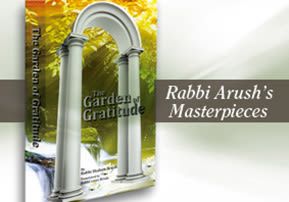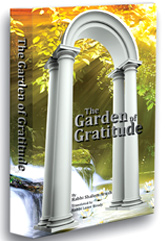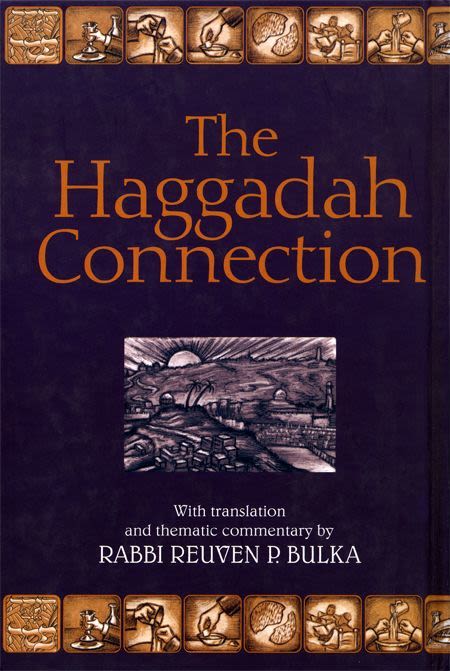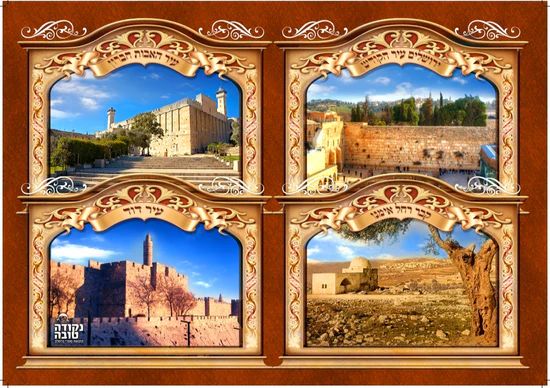
Rabbi Arush’s Masterpieces
A European outreach activist writes about the phenomenal effect that Rabbi Shalom Arush’s books have on everyone that reads them…

I came home to find the Breslev Israel package had arrived. As I pried open the envelope which revealed the much anticipated book, the cynic in me started to wonder if Rabbi Arush could actually “top” his previous masterpieces, which had so influenced me over the past few years here in the wilderness, that’s chutz l’aretz to you and me. I mean, can you really write a book just about gratitude? And wouldn’t it just be, well, more of the same emuna ideas?
 The answer, my friends, is a “yes” to my first doubt, and a “no” to the second.
The answer, my friends, is a “yes” to my first doubt, and a “no” to the second.
As I finished my first reading of The Garden of Gratitude, it occurred to me that the quartet of emuna books – The Garden of Yearning, The Garden of Emuna, In Forest Fields and now The Garden of Gratitude – had come full circle. There seemed to be shleimut, a completion, with each book being an outgrowth and facet of the previous and yet standing alone in integrity.
In my experience, even in the Outreach world which I have been involved with, both as a baalat teshuva [I really don’t like labels!] and as an employee in an Outreach organization, we tend to be a little “reserved”, shall we say, when it comes to talking emuna, let alone hitbodedut.
I remember a few years ago sitting in the lobby of a Jerusalem hotel a few seats away from a group of Christian visitors. Two of them were talking; one seemed visibly upset over a problem she had and the other woman suggested that they pray … yes, in the hotel lobby! I confess to experiencing two conflicting emotions: one being, oh dear, please don’t, I’ll cringe, and the other, how fortunate to feel so uninhibited about speaking to The Almighty, why don’t I do that?
A few years later, and after learning In Forest Fields, yes, I too speak unfettered to The Almighty [well, OK, I still might not do it in a hotel lobby!].
And now, with The Garden of Gratitude, Rabbi Arush is offering the spiritual seeker another in-depth novel approach to what should be for the Jewish soul a natural pathway but, after 2,000 year of exile, tragically quite often isn’t.
And so to the subject of gratitude…
So many thoughts come to mind as I read this holy book, now for the second time, and here I have taken the liberty of highlighting a couple of them:
For one, I had never realized how much as a nation we have historically complained and how seemingly simple it should be to correct.
And yet, even some of us who profess to be grateful to Hashem for all the bounty He bestows on us are maybe somewhat dishonest with ourselves. In trying situations, how many times do we find ourselves saying, or hear others say, something like “I know I have a lot to be grateful for, yes Hashem has given me x, y and z…”, followed by a pregnant pause, and, if we listen carefully, we’ll be aware of a small three letter word, clothed in the airwaves, silent and yet resounding….BUT.. followed by the complaint, what I don’t have, what’s not perfect – BUT, this small insignificant word which destroys all the gratitude that preceded it.
And regarding the definition of exile, Rabbi Arush writes “Exile is a situation in which people do not desire the truth… Exile is life with no purpose. Liberty is life with purpose”. How true.
We tell ourselves all is lost, I should have this, if only I’d done that, things would be different. We haven’t internalised that every moment is an opportunity to serve and thank Hashem, and that means even in the seemingly mundane, every day things, the small gestures, the smile and thank you to the cashier at the supermarket, the chesed for a parent, a child, spouse or friend, the thank you to Hashem when the bus arrives on time, when what you needed to buy was in the shop. And yes, and maybe more importantly, to be able to overcome the seemingly overwhelming personal block to being able to thank Hashem for the seemingly bad, the suffering. I could go on.
But I won’t.
Read the book… and allow yourself to be truly liberated.












7/27/2011
Well put This is such a well-written piece. Although I haven't finished the book yet, I too had the same sentiment before I started it, and am awed at how beautiful this book is.
7/27/2011
This is such a well-written piece. Although I haven't finished the book yet, I too had the same sentiment before I started it, and am awed at how beautiful this book is.